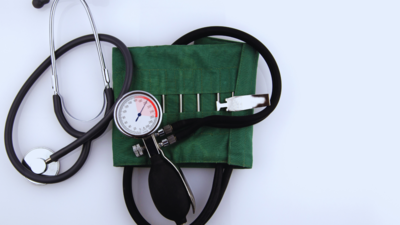In an odd convergence of digestive health and cardiology, there’s emerging science that points to a biological pathway that might have significant implications for blood pressure control: passing gas.A study by Johns Hopkins University found out that hydrogen sulfide, a gut-produced gas released while passing gas, has been found to have potential in reducing blood pressure.
Science behind the assertion

Hydrogen sulfide (H₂S) is a natural gas in the body that is formed when certain bacteria in the gut digest food. Although it’s most popularly linked with the smell of flatulence, H₂S is also formed by human cells in minute quantities. Researchers have found over the recent years that the gas functions as an intercellular communication molecule in the cardiovascular system.The research demonstrates that hydrogen sulfide causes arteries to dilate, letting blood circulate more freely and reducing the pressure on artery walls. The action, called vasodilation, plays an important role in the maintenance of normal blood pressure and protection against complications of hypertension like stroke, heart attack, and kidney disease.
The process:
The enzyme responsible for producing hydrogen sulfide in the body causes relaxation of vascular smooth muscle, an important determinant of blood pressure and vascular resistance. Laboratory exposure to designed experiments in animals has been reported to reduce blood pressure in hypertensive models with a robust biological rationale for its mechanisms.
So what does that mean for us?

Even the notion of gas being beneficial to one’s health is humorous, but the takeaway here is larger: cardiovascular health directly relates to the gut microbiome and its byproducts. A balance of gut flora achieved through a high-fiber diet, prebiotics, and probiotics can result in the production of such natural compounds as hydrogen sulfide, which in turn may maintain cardiac function.It must be stated that the study is not recommending unregulated flatulence or extreme changes in diet over medical recommendations. Furthermore, the direct correlation of gas release and blood pressure in human beings is also under research. Nevertheless, what the study does point out is the interconnection between the cardiovascular system and the digestive system, which goes further to show the significance of gut health in overall wellness programs.Although it may be the courteous thing to do, not passing gas is actually creating some undesirable side effects on your circulatory system, according to the new science. More generally, this research contributes to the vast evidence that what goes on in the gut does not stay in the gut; it influences the whole body.As our knowledge of the microbiome expands, so does our understanding of the subtle, intricate mechanisms our bodies use to maintain equilibrium, sometimes in the strangest ways.


















.jpg?w=700&c=0)





































